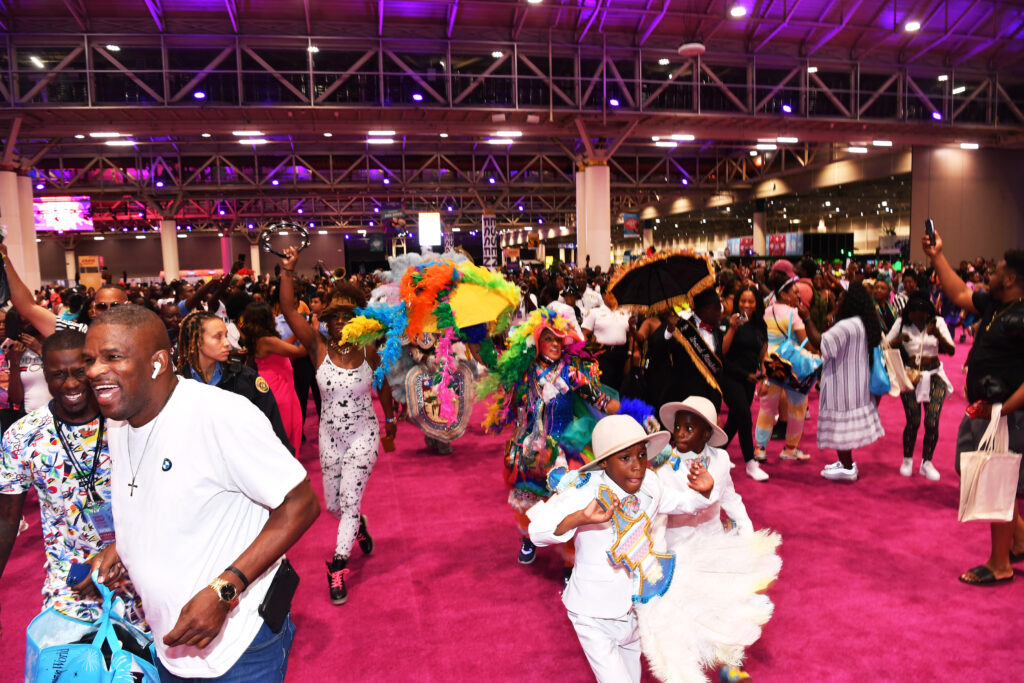Brandweek will feature live discussions with marketing pros at Dakota Media, Converse, UPS and more. Meet us in Miami Sept. 11–14 to boost your business and elevate your brand.
During the summer months, it’s natural for the connotation of word “festival” to conjure thoughts of parties, performances and celebrating with abandon (i.e., music festivals), whereas in the autumn months the term has been co-opted by semi-cerebral media companies packaging glitzy, thought leadership programming for audiences clamoring to attend networking functions where they can meet notable actors, authors, playwrights and business and tech geniuses in a more “relaxed” setting.
In a way, the Essence Festival of Culture is an amalgamation of both. Although, now in its 29th year, it has preceded most of the molds.
Originally dubbed the “party with a purpose,” the festival began in 1994 to celebrate the 25th year of Essence Magazine, one of the most popular and heralded publications catering to Black women. It has since become the largest music and culture event for Black Americans in the United States, with an estimated 500,000 attendees annually, and continues to draw celebrities, political figures and influential personalities in business, politics and entertainment across multiple generations, disciplines and demographics.
Vice President Kamala Harris—who, last year, spoke with Keke Palmer during a fireside chat addressing the critical issues facing Black women—will return this year to participate in her second Global Black Economic Forum discussion hosted by the festival. Harris will be joined by Secretary of Treasury, Janet Yellen, U.S. Ambassador to the United Nations Linda Thomas-Greenfield and Administrator of the U.S. Environmental Protection Agency Michael Regan.
It was also the inspiration behind (and setting for) the hit film “Girls Trip,” which grossed over $140 million at the box office, and catapulted a then-unknown Tiffany Haddish to fame.

And most notably, a recent report conducted by HBCU, Dillard University, found that the festival has been a financial boon for the city of New Orleans, which has hosted the event since its inception, apart from 2006, when it was forced to move to Houston in the wake of the city’s devastation following Hurricane Katrina. The study found that in 2022, the city saw an impact of over $300 million from the festival, a figure that Pauline Malcom-Thornton, chief revenue officer of Essence Ventures, says is part of a cumulative economic impact totaling over $4 billion.
In short: The Essence Festival of Culture is a very big deal, and brands looking to authentically connect with the Essence audience, which comprises of highly engaged, educated, and affluent Black consumers, need to pay attention.
Culture club
It is for this and many reasons that the team at Essence Ventures—which owns and operates the festival—remain calculated when considering all aspects of the event…including the brands they partner with to bring the experience to their covetable audience.
“We’re very, very intentional about ensuring that our partners are making meaningful impact within the community,” Malcom-Thornton told Adweek. “That they’re hiring communities of color in terms of preferred vendors that they might work with. And that it really is an investment in the Black economic success and helping us to close the wealth and pay gap in that community. But also, at a macro level as well.”

